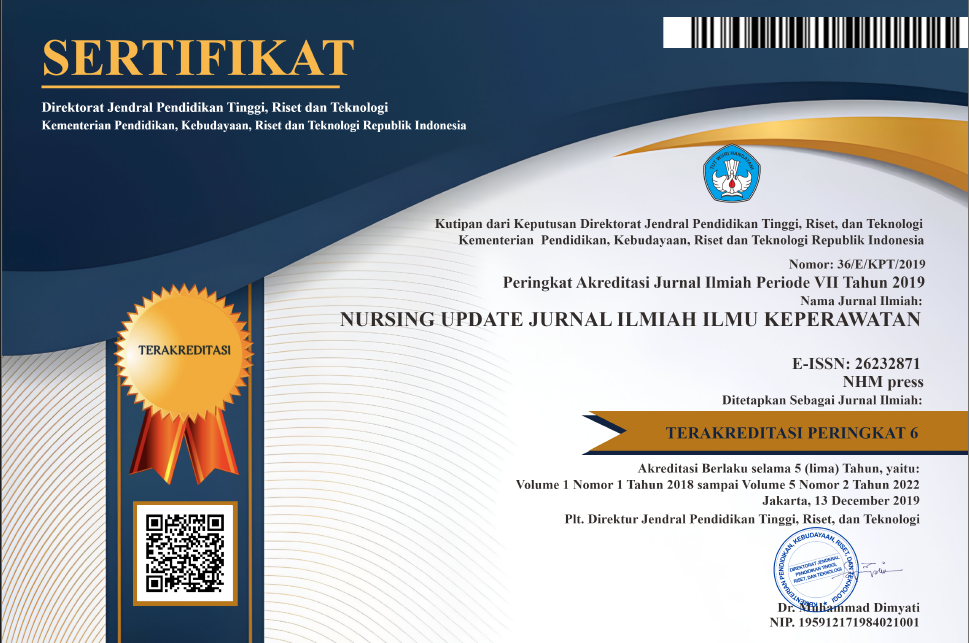PENGARUH PEMAKAIAN BLOWER PENGHANGAT TERHADAP KEJADIAN HIPOTHERMIA PADA PASIEN POST OPERASI URETEROSCOPY
Abstract
Stones in the urethral tract or ureterolithiasis cause pain, vomiting, and shivering due to infection. The management of ureterolithiasis includes invasive procedures such as ureteroscopy. Hypothermia may occur during ureteroscopy operations due to the use of anesthetic drugs, exposure to cold air in the surgery room, and the administration of cold fluids. Providing a heating blower is an effective nursing intervention to prevent hypothermia after surgery. The study determined the effects of heating blower on the occurrence of hypothermia in post-uteroscopy patients. The quasi-experimental research method used a one-group pretest-posttest design. The study involved 30 post-ureteroscopy patients at the Telogorejo SMC. The researchers accidentally collected the samples, using thermometers and observation sheets as instruments. The results found the pretest result, without a heating blower, with the body temperature mean of 35.8o (mild hypothermia), after providing the heating blower for 45 minutes, the body temperature mean increased to 36.9o (no hyperthermia). The results indicate the influence of the heating blower toward the hyperthermia prevalence of post-ureteroscopy patients at SMC Telogorejo with a p-value of 0.000 lower than 0.05 and a body temperature increase of 1.03oC. The results suggest doctors use a heating blower as one of the post-ureteroscopy nursing interventions.










